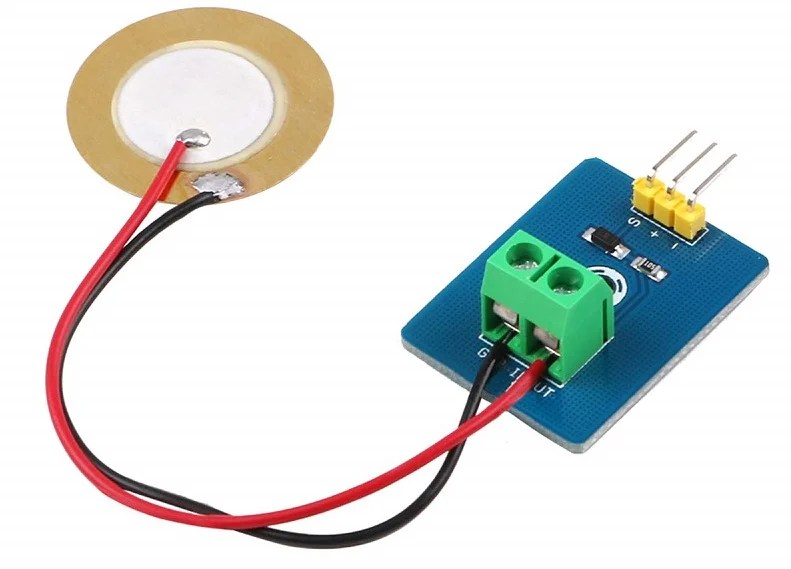This Analog Piezoelectric Ceramic Vibration Module buffers a piezoelectric transducer that responds to strain changes by generating a measurable output voltage change which is proportional with the strength of vibration also known as ‘piezoelectric effect’. So you can know the extent of vibration. Different from digital vibration sensor that only accounts times, this analog one can tell extent of vibration.

When the piezoelectric ceramic shocking will generate an electrical signal, controller analog port can be perceived slight vibration signals, also can be realized with vibration interactions related works, such as electronic drums. The output voltage is proportional to the strength of shock or vibration. So you can measure and characterize the vibration.
Features:
- Working Voltage: 3.3V or 5V
- Working Current: <1mA
- Operating Temperature Range: -10 ℃ ~ + 70 ℃
- Interface Type: Analog Output
- Dimension (mm): 30 (L) x 23 (W) x 17 (H)
- Weight: 5g
Pin definition:
- S: output signal from the sensor (connected to arduino analog input)
- +: Voltage supply (VCC = 3.3 – 5)
- –: Ground (GND)

How to Use:
To use a piezoelectric sensor is easy, just connect the positive and negative terminal to your module and press the top of sensor. By pressing, due to mechanical pressure it creates voltage at output which is further feed to the circuit. Connect the piezoelectric sensor, as shown in the video below.
Packing List:
- 1 x Analog Piezoelectric Ceramic Vibration Module
Resources:
- You can refer to this page on how to use your vibration sensor.




Reviews
There are no reviews yet.